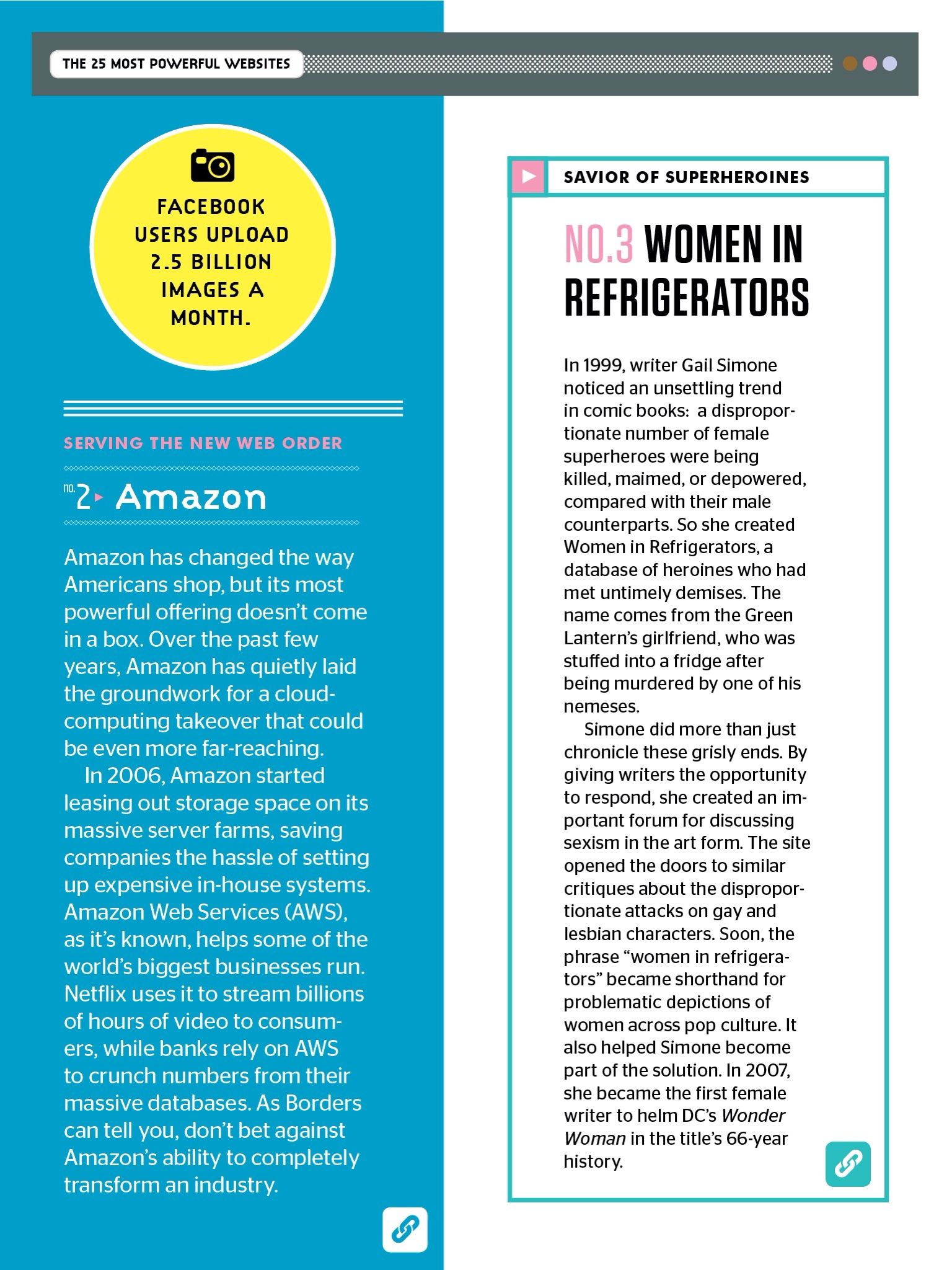It's been more than 14 years since a then-unknown Gail Simone and friends launched Women in Refrigerators, a website that attempted to catalog the female characters in superhero comics who have been "killed, raped, depowered, crippled, turned evil, maimed, tortured, contracted a disease" or otherwise suffered "life-derailing tragedies." The list sparked reflection and debate, and ingrained the phrase "women in refrigerators" into the comic-book lexicon, and even beyond (it's a reference to the grisly fate of Kyle Rayner's girlfriend Alex DeWitt).
The website was, without a doubt, critical to fostering important discussion about the treatment of female characters, but just how influential, how powerful, is Women in Refrigerators? More powerful that Yelp, Slashdot or 4chan, it turns out, and (at No. 3) only slightly less powerful than Amazon.
That's according to the November issue of the trivia/entertainment magazine Mental Floss, which has released its list of the "25 Most Powerful Websites" (see the entry below). Any list of that kind is, naturally, subjective, and Mental Floss' definition of "powerful" is especially nebulous. "[T]o us, powerful isn't just about computations," the magazine states, explaining the exclusion of Google, "it's about changing what we eat, how we vote, and the ways we kill time at the office."
How much Women in Refrigerators affected change, particularly outside of comics, is debatable, but it has certainly influenced the discussion; the database is still cited in mainstream media coverage of superhero comics, and inspired the late author Perry Moore in 2007 to compile his own list of dead, depowered and retconned gay and lesbian characters. But the greatest testament is that, 14 years later, the phrase "women in refrigerators" -- often in reference to a female character murdered, raped or maimed as incitement for the hero to act, or to demonstrate just how bad the villain is -- continues to be used with regularity in blog posts, comment threads and forum debates. On the flip side, that may also illustrate just how little things have changed in that time.
But is Women in Refrigerators more powerful than, say, Yelp, 4chan or Slashdot? Objectively, no (and by putting 4chan at No. 9, Mental Floss is just asking for trouble), but with its appearance on the list, the website does what it's always done: provoke discussion.
(via ComicBook.com)



